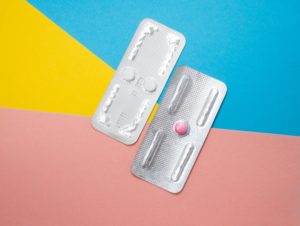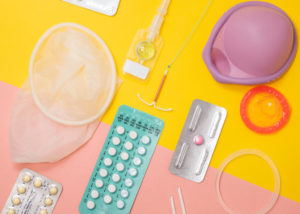 Today, it is almost frowned upon if someone isn’t using or isn’t on some kind of contraceptive, it is also seen mostly as a responsibility for women to take on.
Today, it is almost frowned upon if someone isn’t using or isn’t on some kind of contraceptive, it is also seen mostly as a responsibility for women to take on.
Contraceptives are a positive win for the feminist inside all of us, ie being able to have control over our reproduction, our stability, and when we want to get pregnant. They appear to help reduce acne, and some hormonal contraceptives are touted as being able to decrease the risk of endometrial and ovarian cancers.1 The question is, what are the risks involved and where do we draw the line?
Young teens are being put on the pill at the drop of a hat for either contraceptive reasons or to seemingly regulate periods, which is actually a bit of a misconception. The pill inhibits the body from ovulating, therefore we are NOT regulating our periods, we aren’t even experiencing a period or natural cycle. Let me say that another way. Technically, on the pill, women don’t even menstruate, they have withdrawal bleeding at the end of each pill cycle.1
The pill is also by no means all fun and games. There are a few common myths with the pill that we need to quickly debunk before we dive right in.
If you have tried multiple different brands and types of pills and none of them feel right, maybe you’ve heard the phrase, ‘there is a pill for everyone’… here’s the thing: being on the pill is not supposed to be normal or safe. If your body is reacting badly, trust it, your body is far smarter than any computer or doctor.
That leads us to another myth; that the pill has no side effects, or that you need to be on the pill or else you’ll get pregnant. Just bear with us, and we will tell you just how incorrect this is further on into this blog.
Whatever we put into our bodies has an effect in one way or another. The most important thing to do is be informed, which many women, unfortunately, are not: when it comes to contraceptive methods. If anyone has ever told you that we don’t need periods, please know that our bodies wouldn’t give us something that we don’t need.
Sure, if you’re adamant you’ll never want to get pregnant, there are some parts of our fertility that we don’t need, but the hormonal side of our cycle is so integral to our inner workings as women. The pill affects more than just our ovaries, it makes changes in the brain as well, AND there is no such thing as a locally active hormone.
Most hormone-based contraceptives, including the pill, patch, ring, IUD, implant, and the shot, contain varying amounts of oestrogen or progestin (synthetic progesterone), or both. The different brands of the pill contain different levels of these hormones, indicating why some women change brands if they feel they are receiving too much or too little of one hormone based on symptoms.
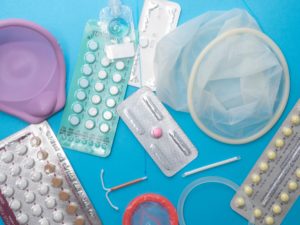 Both of these hormones are usually produced by the ovaries. Too much of theses hormones cause the ovary to not release an egg. Preventing the pituitary gland from releasing FSH and LH, as well as progestin making the cervical mucus thicker and stickier to prevent sperm being able to travel as far as needed. This makes the environment too hostile for conception. Basically, theses contraceptives trick our bodies into thinking they are pregnant all month. Check out our blog Your Cycle explained for more information on how hormone elevation can offset your cycle.
Both of these hormones are usually produced by the ovaries. Too much of theses hormones cause the ovary to not release an egg. Preventing the pituitary gland from releasing FSH and LH, as well as progestin making the cervical mucus thicker and stickier to prevent sperm being able to travel as far as needed. This makes the environment too hostile for conception. Basically, theses contraceptives trick our bodies into thinking they are pregnant all month. Check out our blog Your Cycle explained for more information on how hormone elevation can offset your cycle.
So, we’re now clearer on how the pill works in the ‘anti-baby pill’ way, but with all these excess hormones, what else can happen? Brace yourself – some of these side-effects are quite alarming, however, as the saying goes, better the devil you know.
Well, here are some of the risks that many women don’t know about hormonal contraceptives:
• Over time these synthetic hormones alter the body’s ability to uptake and utilise vitamins A, B1, B2, B6, B12, C, E, K, folic acid and biotin, as well as minerals such as iron, calcium, magnesium, potassium, selenium, tyrosine, zinc and copper.1 All of these are essential to our overall health and wellbeing.
• Over time they jeopardise the body’s natural ability to regulate its own hormones, especially oestrogen and progesterone
• They increase risk of blood clots, heart attacks, cardiovascular disease, and ischemic strokes, especially if you are a smoker, are overweight, or have Polycystic Ovarian Syndrome (PCOS). Another factor that is typically overlooked is that heart disease is one of the leading causes of death in many westernised countries, and as strange as it sounds some of these are related to hormonal imbalances.2
 • With continued use, there is an increase in the likelihood for those using it for developing depression. A 2016 study by the Journal of American Medical Association found that 23% of women had to go on antidepressants after starting the pill. And in teenagers, the pill increases the likelihood of developing depression by a whopping 80%. Most of our beautiful teenage girls have enough challenges navigating life, without an additional cause for despair.1,3
• With continued use, there is an increase in the likelihood for those using it for developing depression. A 2016 study by the Journal of American Medical Association found that 23% of women had to go on antidepressants after starting the pill. And in teenagers, the pill increases the likelihood of developing depression by a whopping 80%. Most of our beautiful teenage girls have enough challenges navigating life, without an additional cause for despair.1,3
• These contraceptives encourage weight gain and metabolic syndrome from elevated blood glucose and insulin release. The body thinks it’s pregnant, remember? It has a baby to look after and nourish… except it actually doesn’t. This can also cause bloating and nausea in the first few weeks as your body gets used to the extra hormones.2,3
• These drugs can cause headaches and migraines; this is often the main reason women stop taking a certain brand. For the most part, these symptoms go away within the first few months. PLEASE NOTE: if you have a history of migraines yourself or if your family typically suffers with migraines (the pill aside), studies have shown this contraceptive can increase the likelihood of ischemic stroke in such cases.2
• With time these drugs cause hormonal imbalances, unfortunately even after stopping the pill. This can lead to irregular periods and fertile periods, that are near impossible to track, making it much more difficult to get pregnant. Especially if the contraceptive has been used for a long period of time. It can take time (often about a year) to restabilise your hormones.1
• Speaking of infertility, the pill has significant effects on ovarian reserve (number of good quality eggs in the ovaries) and can cause up to 52% shrinkage of the ovaries, especially in women aged 19-29 years old. Not great news I know.1
• Hormonal contraceptives suppress the Hypothalamic-Pituitary-Ovarian (HPO) axis thus affecting female reproduction in many different ways including ovulation disorders, having a huge effect on fertility.4,5
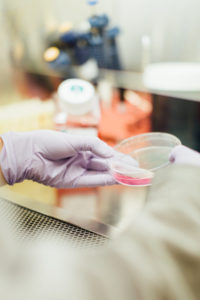 • The pill degenerates our cervical crypts, which produce cervical mucus and have a part to play in enhancing chances of fertilisation. Without fully functioning cervical crypts and insufficient mucus, libido and fertility can be greatly affected.
• The pill degenerates our cervical crypts, which produce cervical mucus and have a part to play in enhancing chances of fertilisation. Without fully functioning cervical crypts and insufficient mucus, libido and fertility can be greatly affected.
• The pill can affect the body’s methylation process by reducing the number of methyl donors, this can in turn cause deficiencies in hormones like serotonin (mood) and melatonin (sleep). Read our blogs on methylation.3
• These drugs increase both insulin and inflammation in the body, this can lead to conditions such as Polycystic Ovarian Syndrome (PCOS)3 and histamine overload. Read our blogs on histamines.2
• Studies show these drugs increase the risk of cervical dysplasia (changes to the cervix), malignant melanoma, IBS, SIBO, inflammatory markers and leaky gut through increasing intestinal permeability.2
• In the case of pills with higher hormone levels, they can lead to impaired glucose tolerance, higher cortisol (and therefore stress levels), increased thyroxine levels in the blood and binding globulin2,3,4
• Interestingly, studies from the University of Liverpool show that the pill has an effect on a woman’s ability to pick a partner genetically dissimilar to herself, which can result in children with genetic abnormalities as well as making women being content with less attractive mates. If this interests you, go check out ‘the Sweaty T-Shirt study’. Yes it’s an actual study ?
• While some studies say that the pill decreases the risk of ovarian and endometrial cancers, on the other hand, studies show it can increase the risk of cervical, breast, liver and central nervous system cancers. Sometimes to an extraordinary level and should definitely not be used as a preventative measure.1
• The pill lowers thyroid hormones by increasing thyroid hormone-binding globulin (THBG). Fewer thyroid hormones effects our energy, healthy hair and skin, and the ability to lose weight just to name a few.1
• Not only are thyroid hormones are affected, but testosterone levels are as well as the pill increases sex hormone-binding globulin (SHBG), levels which tend to never go back to those of women who have never taken a contraceptive. Testosterone is important for energy, mental clarity, healthy bones, confidence, strength and muscle building and libido.3
• Conditions such as Crohn’s disease, candida overgrowth, liver overload, epilepsy, and gum disease can arise, especially from chronic use of the contraceptive pill as it also has effects on the immune system function. It may cause an imbalance between the two branches of the immune system, leading to autoimmune diseases such as Hashimoto’s and Graves’ disease as well as lupus, rheumatoid arthritis, ulcerative colitis or psoriasis.1,3
I’m not too sure many women are told about all of these doozies.
This information may come across as quite a shock, even scary. Especially because many of you may have already been taking the pill, perhaps for many years. You may now be concerned about the long-term damage. Let’s remember we can always support the body to recreate balance, it just may take time and the assistance of natural health care practitioners.
You may also be wondering, how else do we gain sexual freedom and avoid conception?
 Don’t worry, there are alternative, more natural contraceptives.
Don’t worry, there are alternative, more natural contraceptives.
Most of these consist of tracking fertile periods and then using condoms for contraception during these times. There are some methods of tracking your fertile times, especially if you get irregular periods in which just a standard period tracking app might not be accurate enough for you.
These are:
• The Basal temperature method, as the body’s temperature rises slightly a few days before ovulation. There are multiple devices that can be used to measure basal temperature.1
• In addition to tracking body temperature, the Symptom-Thermal fertility method tracks cervical secretions, this method, when done properly is as effective as the contraceptive pill in avoiding unplanned pregnancies with a 99.6% success rate (only 1 in every 250 women get pregnant)1,3
• There are also ovulation test kits, which test for Luteinizing Hormone (LH) in urine, which occurs about 2 days before ovulation, or salt levels indicating rising estrogen in saliva tests, which also occurs just before ovulation.
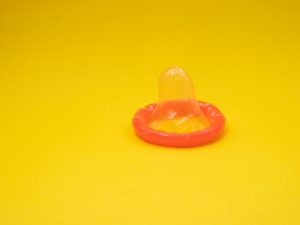 • Condoms, when used properly can be 98% effective. In reality, it is only about 88%. The only problem with lubricated condoms are that they tend to have chemicals that aren’t always great for your body, there are companies such as Sustain Natural that have eco-friendly, body-friendly, vagina-friendly, pH-friendly condoms and lube, and they use fair-trade materials.3
• Condoms, when used properly can be 98% effective. In reality, it is only about 88%. The only problem with lubricated condoms are that they tend to have chemicals that aren’t always great for your body, there are companies such as Sustain Natural that have eco-friendly, body-friendly, vagina-friendly, pH-friendly condoms and lube, and they use fair-trade materials.3
• The Diaphragm is a shallow, bendable cup that is inserted inside the vagina that covers the cervix during sex to prevent sperm from entering and you becoming pregnant. It is usually used in conjunction with spermicide, a cream that kills sperm. They tend to be about 88% effective, often because people don’t use them properly. However, there are few risks such as UTIs and STIs that come along with the diaphragm and repeated use of spermicide.3
• Now as worrying as they may seem, IUD’s, especially the non-hormonal ones usually made of copper, are one of the most widely used contraceptive methods in the western world and work by altering the cervical mucus and thinning the uterine lining to avoid conception and implantation respectively. By altering the uterine lining, this can also be helpful for women with heavy or painful periods. If you do decide you want to get pregnant, they can just be taken out and the cycle returns to normal, however, the cramping and initial implantation can be painful for the first few months and this tends to be why women have them removed before they need to.3
• The withdrawal method tends to be quite underrated, and although it is only about 78% effective, if used in conjunction with some of these other methods, can actually be a very proficient way to avoid getting pregnant, however, there is still the risk of contracting STIs and your partner needs to have a reasonable sense of self-control.3
For those who have been recommended to use the pill for other reasons than simply avoiding an unplanned pregnancy, as much as this advice might not be something you want to hear, we are going to say it anyway. Going on the pill does not get to the root of the problem.
 So my ladies with acne, PCOS, endometriosis, and dysmenorrhea, it’s important to realise that the pill is only a temporary solution. We need to appreciate that if your body is giving you these symptoms, it is trying to tell you that something is wrong. We can’t just put a band-aid over every symptom that arises. It’s the same with headaches – headaches aren’t caused by a lack of paracetamol. The pill tends to just make these conditions worse. For example, women with PCOS often take the pill to regulate their period, lower testosterone, and help with acne, but a lot of times, PCOS in women isn’t just a hormone problem and is likely to be an insulin release problem and birth control makes this worse.
So my ladies with acne, PCOS, endometriosis, and dysmenorrhea, it’s important to realise that the pill is only a temporary solution. We need to appreciate that if your body is giving you these symptoms, it is trying to tell you that something is wrong. We can’t just put a band-aid over every symptom that arises. It’s the same with headaches – headaches aren’t caused by a lack of paracetamol. The pill tends to just make these conditions worse. For example, women with PCOS often take the pill to regulate their period, lower testosterone, and help with acne, but a lot of times, PCOS in women isn’t just a hormone problem and is likely to be an insulin release problem and birth control makes this worse.
And the worst thing? Without the symptoms, we barely notice it happening until it’s too late!
Our health is always the greatest investment we can make in ourselves and our future. It’s vitally important we consider not only what we eat and drink, or what we put on our skin but what over-the-counter drugs and prescriptions that we take, that may compromise our long-term health.
So while you’re exploring this topic take a look at our blog on How to Come Off the Birth Control Pill which includes a hormone reset.
Yours in health,
Jennifer Barham-Floreani,
Bach. Chiropractic, Bach. App Clinical Science
Registered internationally, no longer practicing as a chiropractor in Australia.
Isobella Doherty,
Research Assistant & Student
Barcelona College of Chiropractic
References:
- Wszelaki M. How Birth Control Pills Can Harm You Hormones [Internet]. HormonesBalance.com. 2020 [cited 22 July 2020]. Available from: https://hormonesbalance.com/articles/pill-can-seriously-affect-womans-health/
- Pietrangelo A, Cherney K. The Effects of Hormonal Birth Control on Your Body [Internet]. Healthline. 2019 [cited 22 July 2020]. Available from: https://www.healthline.com/health/birth-control-effects-on-body#1
- Romm A. The Pill: Are the Risks Too Bitter to Swallow? [Internet]. Aviva Romm MD. 2017 [cited 22 July 2020]. Available from: https://avivaromm.com/the-pill-risks/
- Boutot M. Stress and The Menstrual Cycle [Internet]. Helloclue.com. 2016 [cited 22 July 2020]. Available from: https://helloclue.com/articles/cycle-a-z/stress-your-period
- Smith SM, Vale WW. The role of the hypothalamic-pituitary-adrenal axis in neuroendocrine responses to stress. Dialogues Clin Neurosci. 2006;8(4):383–95.
- Khalili H, et al. (2013). Oral contraceptives, reproductive factors and risk of inflammatory bowel disease. DOI:
10.1136/2Fgutjnl-2012-302362


